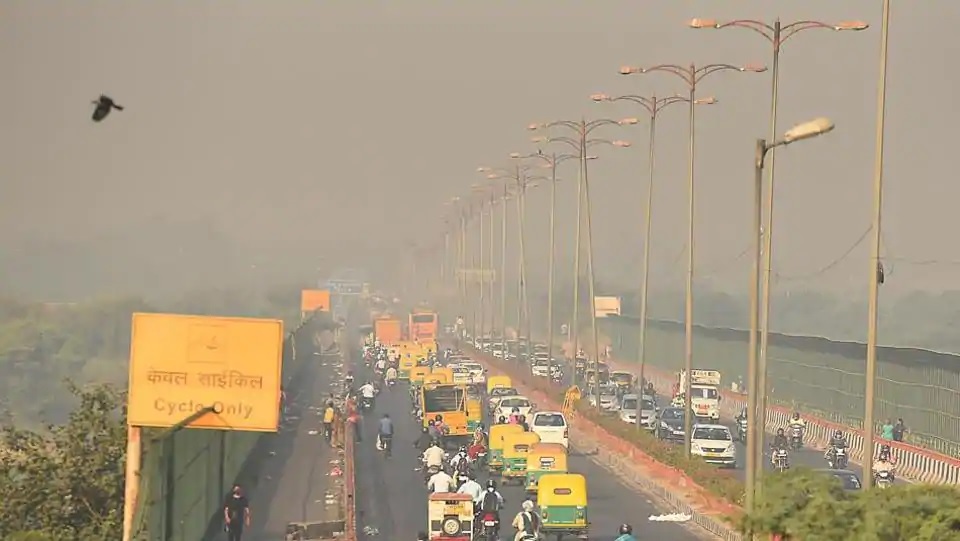Govt notifies new rules, makes it tougher for NGOs to get foreign funds
- Friday | 13th November, 2020

New Delhi: The Indian Meteorological Department on Friday said that the air quality in Delhi is currently very poor and it is expected to go worse to severe on Diwali, i.e. November 14. “Presently Delhi’s air quality is very poor and is expected to go worse to severe tomorrow. It can be worse if there are additional emissions. AQI will improve after Diwali and there are chances of drizzle and rain on 15th November,” Dr VK Soni, Head, Environment and Research Centre, IMD said.
New Delhi: The Indian Meteorological Department on Friday said that the air quality in Delhi is currently very poor and it is expected to go worse to severe on Diwali, i.e. November 14. “Presently Delhi’s air quality is very poor and is expected to go worse to severe tomorrow. It can be worse if there are additional emissions. AQI will improve after Diwali and there are chances of drizzle and rain on 15th November,” Dr VK Soni, Head, Environment and Research Centre, IMD said.
Delhi woke up to “very poor” air quality on Friday morning. The AQI was 328 this morning, while on Thursday the AQI was 314. Delhi’s AQI was ‘severe’ for six days, starting November 6. Due to a change in wind speeds, Delhi’s air quality had marginally improved on Wednesday and Thursday but scientists have warned that respite from severe pollution will be short-lived.
The System of Air Quality and weather Forecasting and Research (SAFAR) under the Indian Institute of Tropical Meteorology, has released a similar forecast for Delhi’s air quality for the Diwali weekend. “The stubble burning induced impact in AQI is expected to increase from negligible to moderate for the next two days,” the SAFAR forecast read. The forecast added that even if residents do not burn any crackers, the PM 2.5 level is still expected to be on the higher-end of ‘very poor’ or the lower-end of ‘severe’ category. However, despite unfavourable weather conditions, the forecast said the AQI is expected to be better this year, as compared to Diwali day and the days after the festival for the past four years.
On Thursday, Delhi’s minimum temperature, recorded at the Safdarjung observatory, which is considered the official reading for the city, was 11.6 degree Celsius – two notches below normal. The maximum temperature was 29.2 degree Celsius – one degree above normal.
